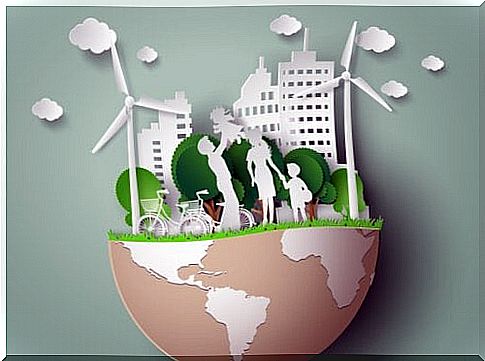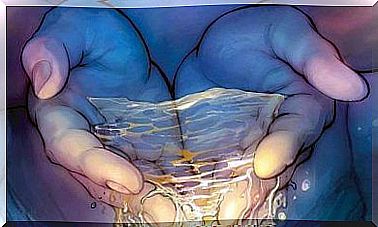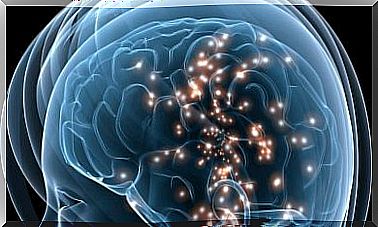Is Degrowth A Solution For Today’s World?

Degrowth is a current of thought formulated by Georgescu-Roegen, a brilliant mathematician and economist of Romanian origin. The principle behind this theory is to progressively reduce production to improve the balance between man and nature. In turn, this would help make the social dynamics, which control the way each person acts, more sustainable.
Growth is perhaps the central goal of all economies in the world, one of the most important mantras of capitalism. The idea is probably growing production followed by growing consumption. Logical. However, this pattern has given rise to undesirable phenomena. The first: a systematic attack on nature and its processes. The second: a significant reduction in the quality of life, human and otherwise.
According to Georgescu-Roegen, the reverse phenomenon, that is degrowth, would allow humans to work less and have more free time. This would be the basis for a new model in which production is regulated, in such a way as to be able to satisfy the needs of society without destroying the environment or transforming humans into a robot.
The decrease in consumption
Nowadays, almost all people spend most of their time working. Unlike what happened in the past, this work often does not have as its main purpose the satisfaction of basic needs. The human being has gradually developed new needs, all associated with consumption.
Many people try to increase their consuming capacity with work. Earn more to buy more, no matter if it is useful or not. Not so long ago you barely needed a soap to wash yourself, now you need five types of soaps or more: hand soap (with moisturizer), body wash, hair shampoo, intimate soap, conditioner, etc.
Consumption capacity has grown dramatically in many companies. However, this does not mean that people are happier or feel more fulfilled. In a study conducted in Canada, a group of volunteers was asked if they felt happier than their parents. Only 44% answered yes, even though the consumption capacity had increased by 60%.

The basics of degrowth
The world has reached such a point that the imbalance between production and nature has become dangerous. The availability of some resources for the new generations is in doubt. We are doing something wrong and the degrowth theory holds that the shortage is in uncontrolled production. Degrowth proposes eight measures or solutions for today’s world:
- Reassess. This solution concerns the need to change individualist and consumerist values with others in which cooperation and the humanist sense of life prevail.
- Reconceptualize. Redefine the concepts of wealth and poverty, need and consumerism. Therefore, adopt a different perspective in the face of lack and abundance.
- Renovate. Adapt the production tool to objectives such as environmental protection and human happiness. For example, opt for ecological efficiency and simplicity.
- Relocate. Recover regional ties. It is a proposal contrary to multinational manufacturing. Each territory could find a way to produce the necessary goods by itself.
- Redistribute. Adopt a vision of cooperation, in which primary goods reach everyone. It means reducing the purchasing power of large global consumers and avoiding excessive consumption.
- Reduce. It is the decrease applied to production and consumption, therefore to working hours. It also implies a reduction in the consumption of medicines and mass tourism that preys on.
- Reuse. That is, to increase the useful life time of the various products. Eliminate the throwaway culture.
- To recycle. It means treating waste properly. Therefore avoid non-recyclable compounds and take care of the garbage we produce.

It is clear that today’s economic system is not creating happiness, but neurosis, alienation and inequality. New paradigms are beginning to emerge in the world, such as the theory of degrowth, which propose a more pleasant and humane goal.









